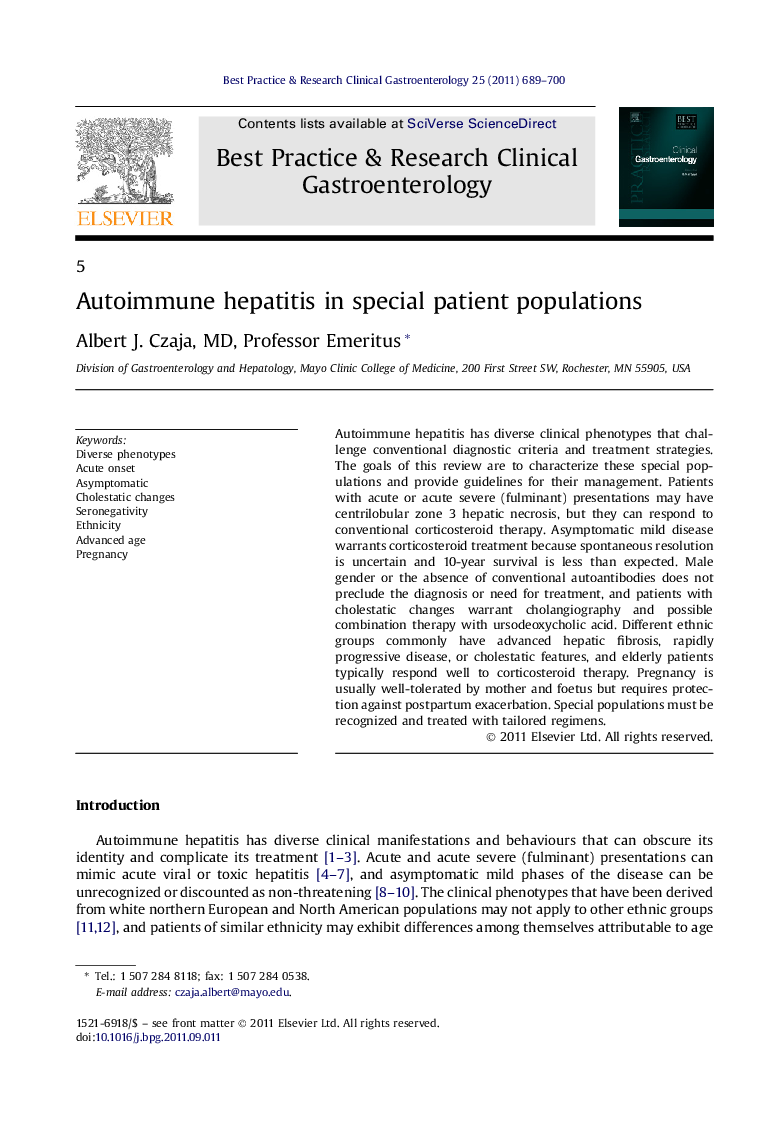| Article ID | Journal | Published Year | Pages | File Type |
|---|---|---|---|---|
| 6086508 | Best Practice & Research Clinical Gastroenterology | 2011 | 12 Pages |
Autoimmune hepatitis has diverse clinical phenotypes that challenge conventional diagnostic criteria and treatment strategies. The goals of this review are to characterize these special populations and provide guidelines for their management. Patients with acute or acute severe (fulminant) presentations may have centrilobular zone 3 hepatic necrosis, but they can respond to conventional corticosteroid therapy. Asymptomatic mild disease warrants corticosteroid treatment because spontaneous resolution is uncertain and 10-year survival is less than expected. Male gender or the absence of conventional autoantibodies does not preclude the diagnosis or need for treatment, and patients with cholestatic changes warrant cholangiography and possible combination therapy with ursodeoxycholic acid. Different ethnic groups commonly have advanced hepatic fibrosis, rapidly progressive disease, or cholestatic features, and elderly patients typically respond well to corticosteroid therapy. Pregnancy is usually well-tolerated by mother and foetus but requires protection against postpartum exacerbation. Special populations must be recognized and treated with tailored regimens.
